Imagine you’re a 27-year-old Korean-American gay man raised by a white evangelical family in Plainfield, Illinois, a town of then about 5,000 people, and you’ve hit New York’s famed (and pricey) Fire Island for the first time. One of the Northeast’s most appealing summer vacation spots, Fire Island is a tiny barrier island on the Atlantic Ocean with LGBTQ+ villages The Pines and Cherry Grove as well as sand dunes, boardwalks, beaches, and attractive men.
Fire Island first became a retreat for artists, actors, and writers in the 1930s. Long before the Stonewall rebellion of 1969, the island was a welcoming destination for gay people and the local theater helped define both drag and camp while providing a safe space for trans and gender-nonconforming people.

On our subscriber cover, Joel Kim Booster wears Lockwood51 old School Jock; Nike shoes; vintage T-shirt and shorts
But in 2015, actor Joel Kim Booster probably knew very little of this (he was homeschooled after all, and jokes of his sheltered upbringing), when he landed in the gay mecca with a bunch of friends. “Back then, I was pretty poor,” he laughs. “I think back in those days, we would shove about 16 people into a four-bedroom house.”
Though it can be “an economically impenetrable island” with a “lot of positives and negatives,” it was a game changer for Kim Booster, the writer and star of the upcoming film Fire Island.
“It was, for me as a young gay man, to go for the very first time in my life to a place where there were no straight people, and you were just sort of able to be free, and, unencumbered — and this is me coming from New York City, which isn’t exactly a red state when it comes to gay issues — but even still, it was really powerful for me to be with some of my closest gay friends in a place where there were no straight people. We could all just sort of be ourselves in a real, sort of primal way, for the very first time.”

Vintage top and jeans; stylist’s own boots
That’s the allure of Fire Island, of course. It’s always been a place for sexual exploration, beginning when same-sex coupling could still land you in prison for life in some states. Truman Capote, Patricia Highsmith, Carson McCullers, and other queer literati were drawn to the same milieu, where ordinary folks experienced sexual liberation (at least on the weekends). AIDS activist Larry Kramer, once a frequent visitor, described the Fire Island he discovered in the 1970s to a 2011 audience this way: “Everyone was gorgeous. Everyone had a body…. Everyone fucked all the time. It was one big party.” (Of course, Kramer also famously derided the region’s homo-hedonism in his book F****ts and play The Normal Heart.)
But for thousands of queers over the last 80 years, Fire Island has been a welcome respite from a straight world. It was for Kim Booster.
“It was really powerful and helpful, in solidifying who I was as a gay man,” Kim Booster says. “Now, I also think that it’s sort of a double-edged sword. When you get all of us together, when it’s just gay men, you sort of start to see the little ways in which gay men discriminate against each other, [even] when there’s no one [else] to discriminate against us. And that is played out in classism and racism, and body fascism. All of those things sort of come into play here in a really ugly way. It’s so important who you go with to the island, you know? We stayed fairly insular.”
 Joel wears Ray-Ban glasses; Charlie by Matthew Zink swimsuit
Joel wears Ray-Ban glasses; Charlie by Matthew Zink swimsuit
That might be harder to do now that Kim Booster, who first became known through his standup comedy, which led to appearances on Conan and NPR’s Wait, Wait... Don’t Tell Me!, has become famous — at the very least, gay famous. His standup led to a debut comedy album, Model Minority, and acting roles on several TV shows and films including Hulu’s Shrill and YouTube’s Viper Club. His role as Jun Ho, a wealthy immigrant, on NBC’s Sunnyside (alongside fellow queer Poppy Liu, who played his sister) was a breakout hit; the mention of now-cancelled Sunnyside online is often a supercut of scenes between Kim Booster and Liu posted by queer Asian fans on reddit.
And in the tradition of Dan Savage’s Savage Love, the actor and his friend Mitra co-host the podcast Urgent Care with Joel Kim Booster + Mitra Jouhari, offering “completely unqualified advice to people who apparently have nowhere else to turn.” The tagline: “Coupling their unique comedic perspectives with completely unquestioned certainty in their own infallibility, Mitra and Joel will change your life, for better or honestly maybe worse!”
But this summer is perhaps Booster’s loftiest project yet. He wrote, produced, and stars in Searchlight Pictures’s Fire Island, now streaming on Hulu and which co-stars his friend Bowen Yang, another gay Asian whose fame blew up during the pandemic (in his case, thanks to Saturday Night Live). As the writer and star of a film that the media keeps calling “groundbreaking,” the pressure is on Kim Booster.

“It is a lot of pressure,” he admits. “Going into making this movie, I set out to write a really deeply personal story about a friendship, and specifically pulling from my experience being friends with Bowen, and being on that island, and sort of the pressure cooker that it can be for gay Asian men at times to live in within this gay community. If people happen to see themselves reflected back from that experience, I think that’s wonderful… [but] it’s a byproduct. It’s not necessarily what I set out to do.”
Kim Booster says that what we should be asking of all queer or marginalized stories, “is not that they represent the entire community, but that in their specificity, it can reach people directly without it needing to be sort of a big tent-pole important work, progress for that community as a whole. I worry, I do. When people tell me, like, ‘Oh, this movie’s going to be so important,’ it makes me a little nervous. I really wanted it to just be a really small, sort of intimate exploration of what it is like for Bowen and I to be on that island, and how our friendship has been, how we support each other, in our differences, and also in our similarities.”

Joel wears Moschino swimsuit; vintage jeans
There may be less sex in the movie than some audiences expect.
“Fire Island, for me anyways, has always been a lot less about sex than it has been about looking for sex,” he explains, laughing. “There’s a lot of logistical barriers to having sex on Fire Island, at least for me. I know some other people who have had far different experiences, but I think the search and the quest for sex is a lot funnier and a lot more interesting, both in real life and in the movie.”
One of the film’s best lines speaks to a phrase that popped up in the 1980s in personal ads in The Advocate and other gay outlets: “No fats, no femmes, no Asians.” The use continued into the Grindr era.
Has that changed?

“Yes and no,” says Kim Booster. “I do think that it has become slightly more socially unacceptable to have it out there in your profile, sort of as boldly as it used to be when I was first starting the online dating journey. At the same time, I do think a lot of those preferences have just gone behind the curtain. I think they still play out. I think rather than challenge our own perceptions of and challenge our preferences, we’ve just sort of hidden them away [but] still let them dictate who we fuck. We would all be better off…if we [would] interrogate those preferences a little bit more, and see where they’re coming from, and why we have those impressions of different communities.”
Of course, Kim Booster, who stripped down in the film (and for his cover shoot with Out Traveler), is already becoming a sex symbol for a whole new generation of gay men — especially young queer Asians. The idea makes him laugh at first.
“Wow. It’s interesting. You know, there’s a lot of questions about, like, ‘What makes a gay man attractive?’ I do sort of now, in this part of my life, check a lot of those boxes. But it does, it seems so crazy to me. Because, I grew up, even before I knew I was gay, there weren’t a lot of depictions of Asian men as confident, sexual beings in the media.”

Joel wears Lockwood51 old School Jock; vintage T-shirt and shorts
There were a few exceptions, he acknowledges, but for the most part, “the media has desexualized Asian men in a way that really did affect the way I viewed myself and my own sort of sexual empowerment growing up.”
He stops to reflect. “And, you know, I didn’t always look like this. I think, for me, it was really about the internal change that sort of brought about an external change, and not the other way around. I had to start feeling good about myself before I could really, actualize looking good, too. I know that sounds hokey to say, but it is true. I think, Fire Island was a big part of that — it was going there and really accepting that I am sexually powerful, and a sexual being, and in that way, really taking charge of how I wanted to look and how I wanted to present myself. For me, it’s exciting to imagine, like a little baby gay, you know, colonizing their desires in the same way white men have been in the media for generations.”

Joel wears a vintage top and shorts; stylist’s own boots
Kim Booster is quick to note that viewers will see “a lot of different ways to be sexy in the movie. I think there’s a lot of, not only racial diversity but also body diversity, and even some gender diversity…. None of the roles were written to be a certain body type or — other than Bowen and I — a certain race. We just ended up with a really organically diverse cast that, to me, anyways felt really specific, and also true to my own experiences going to Fire Island with…my community of people that I’ve built in New York.”
While he and Bowen share “two demographic checkboxes,” Kim Booster argues, they actually “represent a wide berth of experience, just within those two identities.” As a young person, he admits, “It would have been really powerful for me to see all the possibilities of what it is to be a gay Asian man in this world. If there are gay Asian men watching this movie who don’t see themselves reflected in either of our experiences, I hope that their reaction is to say, ‘I want to create more.’ Eight years ago, when I first met Bowen, I think that there was this idea that…we would never be co-leading a movie together, because we’re too quote-unquote ‘similar’ — that’s how the industry saw us.” He hopes Fire Island inspires other gay Asian creators to say, “There is room for all of us, and there’s a lot of room for different versions of our story.”

Joel wears Charlie by Matthew Zink swimsuit
Fire Island isn’t the only role where Kim Booster is helping change the public discourse on Asian-Americans. The actor is also the voice of Charles Lu on Netflix’s ribald animated comedy Big Mouth, a show he’s also a writer for. Charles Lu is repeatedly referred to as the “hottest guy in school” by the middle schoolers at the center of the series. Kim Booster didn’t create this character, but he does inhabit him.
“Charles Lu was a character that was created prior to me entering the room,” Kim Booster acknowledges. “He was a background character, and I think was mentioned as the hottest kid in school before I was on the show officially. But it was largely a collective idea in the room of wanting — his Asian-ness is not a part of the joke. And that was really what struck me as interesting about that character. It wasn’t like, Oh, it’s funny that the hottest kid in school happens to be Asian. It was really important to me, and remarkable to me, that that wasn’t a part of the conversation ever.”
Big Mouth tackles LGBTQ+ issues in a variety of ways and incorporates something Kim Booster also brings to Fire Island: gay shade. The film is something of a riff of Jane Austen’s Pride and Prejudice. He says when he was first introduced to Austen’s take on how people are subtly awful to each other, he immediately thought, Oh my God, that’s gay shade.

On our newstand cover, Joel wears Ray-Ban glasses; Charlie by Matthew Zink swimsuit
Kim Booster says he can’t recall when he first learned about shade. “I think it’s like one of those things where once you learn about it, it feels like it’s been unlocked for you your entire life,” Kim Booster reflects. “I think I’m of a generation of gay men who luckily learned some of the gay vernacular prior to Drag Race sort of introducing it to a wider audience. I’m not exactly sure I could tell you the first time I learned what shade was. I’m sure, it was from older gay men in my community in New York or in Chicago.”
And as much as he’s an admirer of Austen, he’s a greater fan of another adaptation of her work: Clueless. “Oh my gosh. Clueless is one of my favorite movies, and as much as my movie is a reference to Pride and Prejudice, I think it’s also sort of an homage to Amy Heckerling’s work in Clueless, as well. It’s not only a brilliant adaptation, but it’s a brilliant movie on its own. What she did is sort of scan the comedy of manners of Emma, and it scanned so well into high school life. I think if I can do the same thing for gay men on Fire Island that Heckerling did for, you know, high school girls in Beverly Hills — I’ll be very, very happy. If anybody even brings up Clueless in the same breath as Fire Island, I’ll be very, very happy.”
This piece initially ran in Out Traveler print issue Summer 2022.
Photography: Maxwell Poth @maxwellpoth
Stylist: Mark Monroe @marko_monroe
Hair & Makeup: Tracy Raffelson @tracyraffelsonmakeup
Assistant Photographer: Max Bronner @maxbronner







 Joel wears Ray-Ban glasses; Charlie by Matthew Zink swimsuit
Joel wears Ray-Ban glasses; Charlie by Matthew Zink swimsuit


















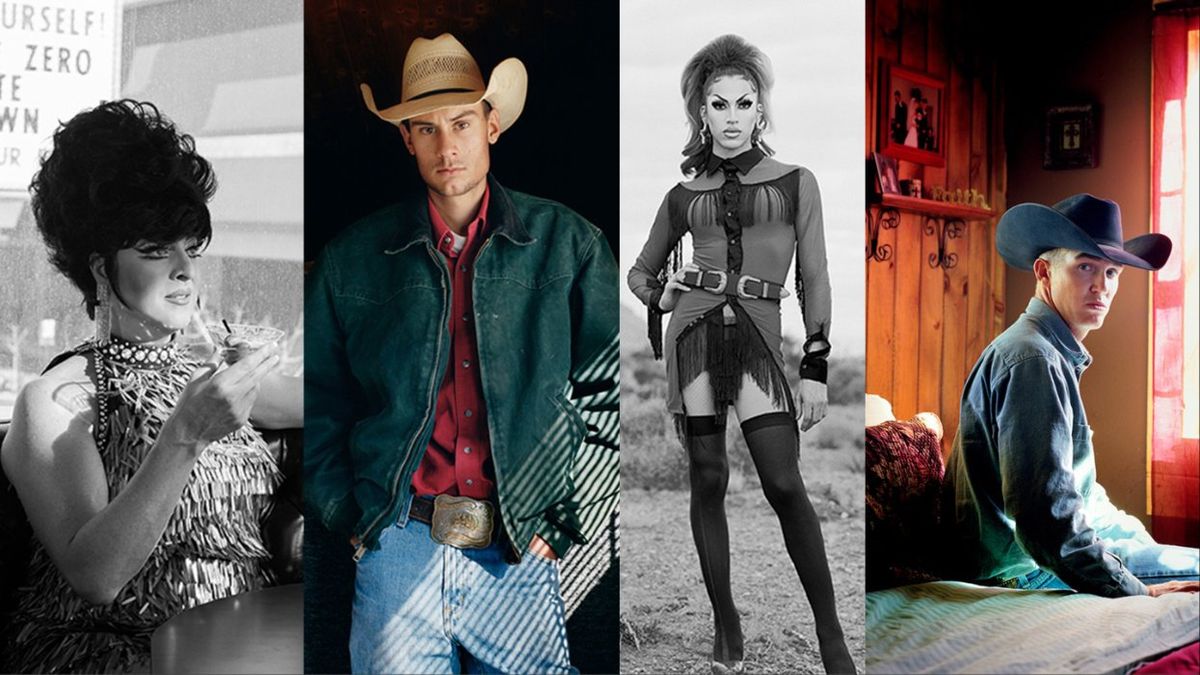













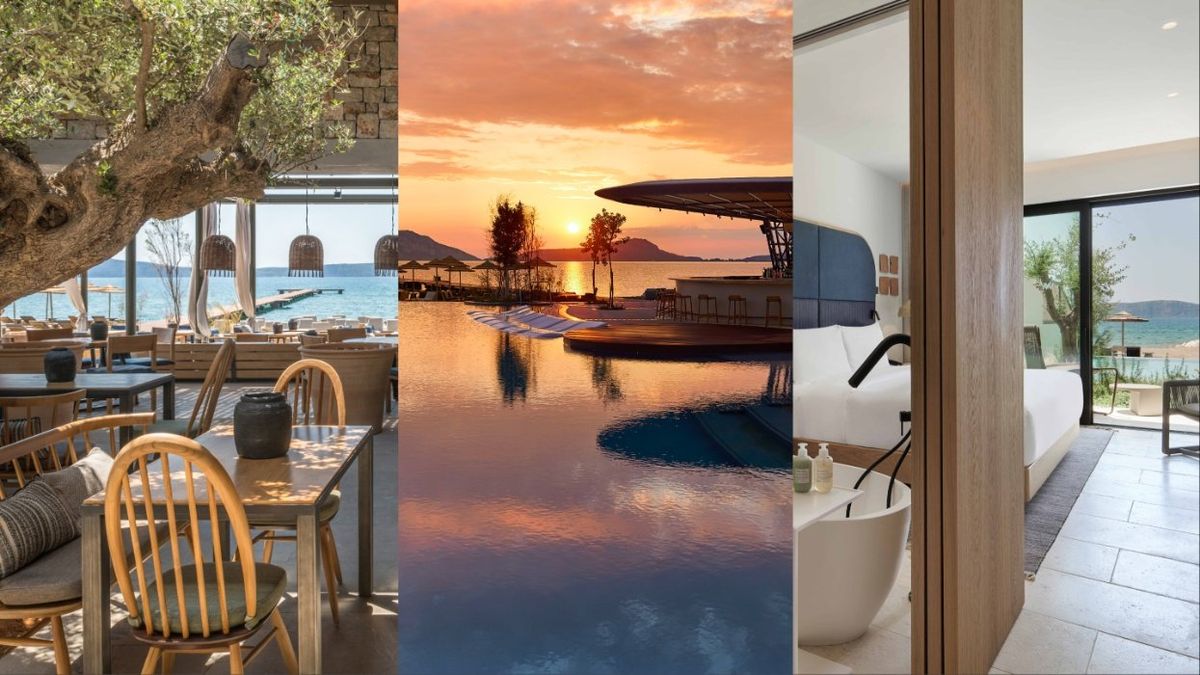














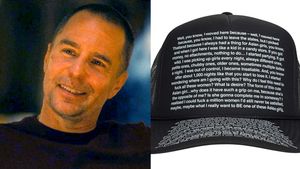
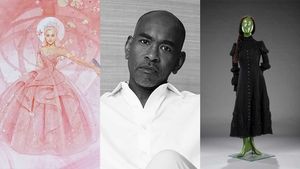


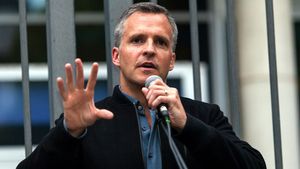


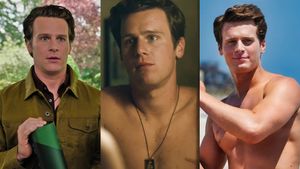


















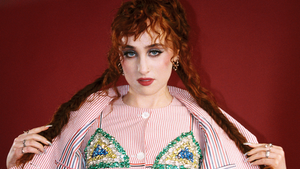

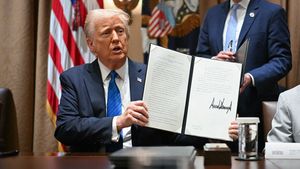









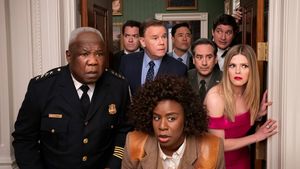
Exclusive: Lady Bunny releases new 'Hot To Blow' video